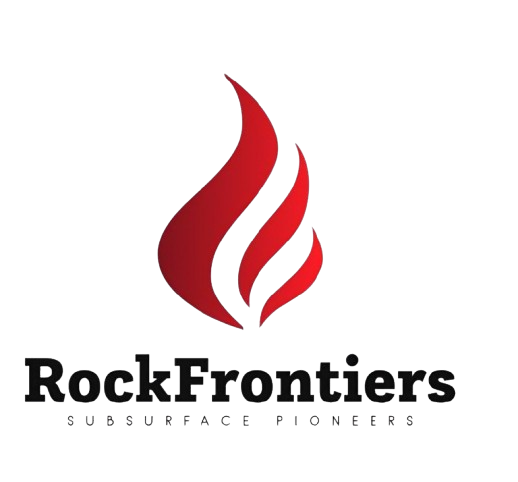Deep-water Turbidite Depositional Systems and Reservoirs
🧾 Course Description: This course provides a comprehensive understanding of deep-water turbidite depositional systems, focusing on their sedimentological architecture, seismic and core expression, reservoir quality, and implications for exploration and development. Participants will examine key elements of turbidite systems, including …
Overview
🧾 Course Description:
This course provides a comprehensive understanding of deep-water turbidite depositional systems, focusing on their sedimentological architecture, seismic and core expression, reservoir quality, and implications for exploration and development. Participants will examine key elements of turbidite systems, including channel-levee complexes, lobes, mass transport deposits, and slope failures. Real-world case studies and exercises are used to reinforce principles and enhance interpretation and modeling skills.
🎯 Who Should Attend:
-
Geologists and sedimentologists involved in reservoir characterization
-
Geophysicists interpreting deep-water seismic datasets
-
Reservoir engineers working with turbidite fields
-
Exploration managers and technical team leaders
-
Graduate students and early-career professionals entering deepwater projects
🏷️ Training Format:
-
Classroom-based or online instructor-led
-
Combination of lectures, seismic/core interpretation exercises, and group discussion
-
Materials include course manual, seismic examples, and outcrop analogues
📅 5-Day Detailed Agenda with Time Breaks:
🟦 Day 1 – Introduction to Deep-Water Systems
| Time | Topic |
|---|---|
| 09:00 – 09:30 | Course Introduction and Objectives |
| 09:30 – 10:30 | Fundamentals of Deep-Water Sedimentation: Processes and Products |
| 10:30 – 10:45 | ☕ Coffee Break |
| 10:45 – 12:15 | Classification of Turbidites (Bouma, Lowe) |
| 12:15 – 13:15 | 🍽️ Lunch Break |
| 13:15 – 14:45 | Slope to Basin Floor System Overview |
| 14:45 – 15:00 | ☕ Coffee Break |
| 15:00 – 16:30 | Introduction to Core and Outcrop Examples of Turbidite Systems |
🟦 Day 2 – Architectural Elements of Turbidite Systems
| Time | Topic |
|---|---|
| 09:00 – 10:30 | Channel-Levee Systems |
| 10:30 – 10:45 | ☕ Coffee Break |
| 10:45 – 12:15 | Lobes: Distributive and Sheet-like Facies |
| 12:15 – 13:15 | 🍽️ Lunch Break |
| 13:15 – 14:45 | Mass Transport Complexes (MTDs) and Slope Failures |
| 14:45 – 15:00 | ☕ Coffee Break |
| 15:00 – 16:30 | Architectural Hierarchies and Depositional Cycles |
🟦 Day 3 – Turbidite Reservoir Properties and Seismic Interpretation
| Time | Topic |
|---|---|
| 09:00 – 10:30 | Reservoir Quality: Porosity, Permeability & Facies Controls |
| 10:30 – 10:45 | ☕ Coffee Break |
| 10:45 – 12:15 | Seismic Expression of Turbidite Systems |
| 12:15 – 13:15 | 🍽️ Lunch Break |
| 13:15 – 14:45 | Amplitude & Attribute Analysis in Deepwater Settings |
| 14:45 – 15:00 | ☕ Coffee Break |
| 15:00 – 16:30 | Practical Exercise: Seismic Interpretation of Channel-Lobe Complexes |
🟦 Day 4 – Reservoir Modeling and Development Considerations
| Time | Topic |
|---|---|
| 09:00 – 10:30 | Static Modeling of Turbidite Systems |
| 10:30 – 10:45 | ☕ Coffee Break |
| 10:45 – 12:15 | Well Correlation and Core-to-Seismic Integration |
| 12:15 – 13:15 | 🍽️ Lunch Break |
| 13:15 – 14:45 | Reservoir Connectivity and Compartmentalization |
| 14:45 – 15:00 | ☕ Coffee Break |
| 15:00 – 16:30 | Case Study: Turbidite Fields (e.g., Gulf of Mexico, West Africa) |
🟦 Day 5 – Risk Assessment, Analogues and Wrap-up
| Time | Topic |
|---|---|
| 09:00 – 10:30 | Geologic Risk in Deep-Water Exploration |
| 10:30 – 10:45 | ☕ Coffee Break |
| 10:45 – 12:15 | Outcrop Analogues and Their Application in Subsurface Modeling |
| 12:15 – 13:15 | 🍽️ Lunch Break |
| 13:15 – 14:45 | Group Exercise: Mapping and Modeling from Core + Seismic Data |
| 14:45 – 15:00 | ☕ Coffee Break |
| 15:00 – 16:30 | Final Review, Q&A, Feedback and Certificate Distribution |
Target audiences
- Reservoir Engineers, Geologists
You May Like
Gas and oil laboratories in the petroleum industryCopy
Course Description This course provides a comprehensive overview of laboratory practices, techniques, and standards used in the petroleum industry. Participants will understand how laboratory results guide exploration, drilling, production, and refining decisions. The course explores lab procedures for PVT analysis, …
Advanced gas chromatography techniques and troubleshooting
📘 Course Description: This advanced-level course is designed for experienced chromatographers and laboratory professionals who wish to master the latest techniques, applications, and in-depth troubleshooting strategies in Gas Chromatography (GC). The program focuses on method enhancement, selectivity tuning, high-resolution separations, …
🧪 Gas Chromatography Analysis – Principles, Practice & Applications
📘 Course Description: This intensive course provides a comprehensive understanding of Gas Chromatography (GC) and its application in chemical, petrochemical, pharmaceutical, and environmental laboratories. Participants will learn the fundamentals of gas chromatographic theory, the hardware components, detector technologies, sample preparation, …
Gas and oil laboratories in the petroleum industry
Course Description This course provides a comprehensive overview of laboratory practices, techniques, and standards used in the petroleum industry. Participants will understand how laboratory results guide exploration, drilling, production, and refining decisions. The course explores lab procedures for PVT analysis, …
Advanced Specialist Petroleum GeoMechanics
📘 Course Description: This elite-level course is tailored for petroleum geomechanics specialists and senior subsurface professionals engaged in complex field development projects. It provides a deep technical dive into stress modeling, anisotropic rock behavior, coupled geomechanical-reservoir simulation, fault/fracture mechanics, and …





